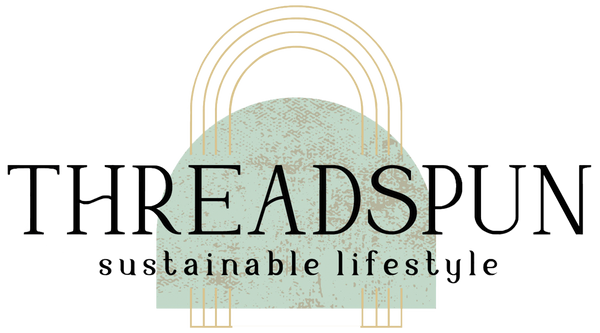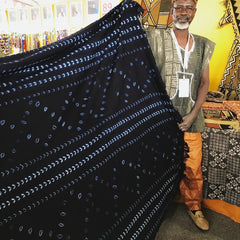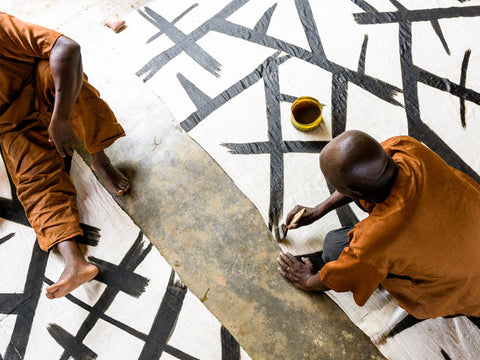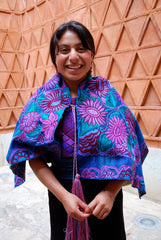Thread Spun Artisan Partners
Local Artisans
LashtaOriginally from Afghanistan, Lashta fled with her family after being targeted by the Taliban. She is a mother to four children and has been sewing for almost ten years. Lashta is thrilled to be working with Thread Spun on our entire product line while creating sheets and curtains for her friend's homes on the side. She recently became a proud U.S. citizen. |

|
PlehPleh was the first former refugee to work with Thread Spun creating our handmade surfboard bags. Originally from Burma, Pleh lived for many years in a refugee camp in northern Thailand before she was resettled in San Diego. She is now a (very) proud U.S. citizen! Pleh belongs to the Karen (prounced "kuh ren") ethnic minority, which traditionally weaves intricate and beautiful textiles using backstrap looms. |
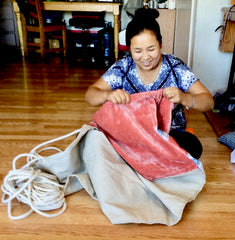 |
International Artisans
Burkina Faso | Habibou Coulibaly
|
Habibou Coulibaby is a textile artist from the Bamana people and originally from Mali. He is now located in Burkina Faso and is an active member of a local dyer's cooperative. Coulibably uses minerals, clays and plants to naturally dye his fabrics, an ancient tradition called "Bogola Fini" in the local Bambara language. His art is not only a part of his creative identity, but his cultural identity as well, and his art is generational. He is committed to supporting the women and youth of his community through training and production of Indigenous art. |
Burma | Yoyamay Ethnographic Textile Gallery
|
Yoyamay Ethnographic Textiles Gallery is located in Yangon, Burma. This organization supports groups of artisan weavers located across Southern Chin State. Traditional Chin textiles utilize silk and pure cotton (often hand spun) and are woven using traditional backstrap looms. National dyes, traditionally vegetable based, are used, and patterns and motifs reflect Chin culture and the environment. The Chin people are comprised of a number of minority ethnic groups historically targeted and persecuted by the Burmese government. They continue to experience human rights violations by the state and in many cases, worsening living conditions. Yoyamay seeks to provide increased economic opportunity by providing Chin weavers with increased access to domestic and international markets, while also allowing them to participate in farming and other supplementary income activities. For more information please visit their website. Working with these diverse partners allows us to create unique, handmade and fair trade goods while also being eco-friendly and supporting cultural preservation. |
Guatemala | Maya Traditions Foundation
|
Maya Traditions is a nonprofit organization located in Panajachel, Solola, Guatemala. The foundation brings together a number of artisan cooperatives and currently works with over 120 indigenous women. Artisans produce all textiles using traditional backstrap looms and utilize all natural dyes. This foundation connects female artisans with markets that are committed to fair trade. Maya Traditions also offers education driven social programs that increase economic opportunities in local communities. For more information please visit their website. |
Mali | Le Ndomo Social Enterprise
|
Le Ndomo Social Enterprise is an organization located in Pelengana, Mali. The organization was created to address the unemployment problem of young people who are unable to attain an education. These young artisans incorporate traditional fabrication methods as well as improved looms in the production of their textiles. Committed to sustainability, only 100% organic cotton and natural dyes are utilized in their products. In addition to employment, Le Ndomo provides technical training and support to each of its young employees. For more information please visit their website. |
Mexico | El Camino de los Altos
|
El Camino de los Altos is a cooperative of 130 indigenous Maya women artisans living in several communities within the rural mountains of Chiapas, Mexico. Artisans utilize backstrap looms, hand embroidery and traditional weaving patterns in creating their textiles. Colors and designs are determined through collaborative effort within the cooperative. A French foundation and group of French designers assists the women with funding and training in marketing, sales, production, inventory control, etc. Weaving creates employment opportunity for women in traditional patriarchal villages and all artisans are paid fairly. Please visit their website for additional information. |
